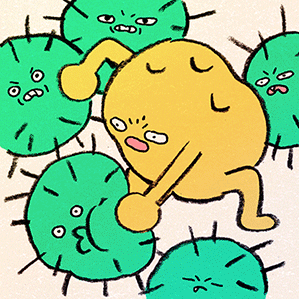
FRANKEN-TATER!....................
Posted on 06/05/2015 12:25:19 PM PDT by Red Badger
Researchers in the U.K. aim for a new commercial potato that resists many of the worst vulnerabilities of potato crops around the world.
Super spuds are coming.
A genetically modified potato that could resist destructive blight, defend itself against parasitic worms, avoid bruising, and cut down on the accumulation of a suspected carcinogen during cooking would be worth many billions of dollars per year to potato producers across the world. It could also serve as a model technology for addressing issues that affect many different crops and are increasingly likely to cause concerns about global food security as the population grows and the world’s climate becomes more unpredictable (see “Why We Will Need Genetically Modified Foods”).
This mega-resilient potato is the goal of a new project officially launched by researchers in the United Kingdom this week. If they are successful, this would be the first potato to have all these traits, each of which has already been demonstrated in previous genetically modified versions of popular potato varieties. The five-year endeavor will be led by Jonathan Jones, a scientist at Sainsbury Lab in the U.K. and one of the world’s leading experts on the genetics of plant diseases.
The potato Jones is aiming for will contain three genes his group has shown to confer resistance to late blight and two genes researchers at the University of Leeds have found to block infestation by a tiny worm called the potato cyst nematode. It will also have DNA the U.S. company J.R. Simplot used to engineer a potato variety, recently commercialized, that has fewer dark spots and contains less asparagine, a chemical that can cause the accumulation of a suspected carcinogen during high-temperature cooking.
Jones’s group has already engineered a blight-resistant potato, using a single gene it cloned from one found in a wild potato plant. For a commercial product, though, a single resistance gene will not be enough, he says, because it would likely lead to the emergence of pathogen strains resistant to that gene. Jones says an important objective of this project is to test the hypothesis that “stacking” multiple resistance genes can safeguard against this danger. His group found all three genes in wild potatoes.
Potatoes are a key staple crop all over the world. In terms of direct human consumption, they are among the top foods globally, along with wheat and rice. They are also quite susceptible to disease, particularly late blight, which led to the Irish potato famine in the mid-1800s. Caused by a fungus-like organism, it remains a “disastrous scourge” on potato crops, Jones says, and farmers in the U.K. must spray pesticide 15 times a year to combat it. The disease costs the U.K.’s potato industry more than $90 million per year. Globally, it costs some $5 billion.
Parasitic nematodes are a similarly massive economic drain on the potato industry in the U.K. and worldwide owing to the costs of pesticides and lost crops. Researchers from the University of Leeds are contributing DNA sequences to Jones’s new potato that will give it powerful weapons to fight the worms. The Leeds group has shown that introducing genes expressed only in the roots of the new potato should provide the crop with two distinct deterrents against them.
Bruising is another expensive problem. Since consumers prefer potatoes without dark spots, companies waste a huge amount of perfectly edible food. Simplot, which is helping to fund Jones’s project and contributing expertise and technology, recently gained U.S. regulatory approval to sell a potato containing DNA that cuts down on the amount of certain sugars responsible for bruising, as well as the amount of asparagine. Asparagine is responsible for the accumulation of acrylamide, which may increase the risk of certain cancers, during cooking.
To deliver the new DNA, Jones and his colleagues will use a well-established method called transformation, which takes advantage of a natural process by which bacteria transfer DNA to plants. Then they will use extensive screening and DNA analysis to identify a few potatoes that appear to have all the desired traits, and those will be tested in the field. “We want to get things in the field as soon as possible,” says Jones, who says the researchers should know within three years whether they have any lines worth commercializing.
If successful, says Jones, the project will illustrate the value of this technology as a way to make production more sustainable and address food security needs. The same general approach is applicable to other crops and can address other destructive diseases, such as wheat rust, he says.
Since it would have benefits to consumers, farmers, and the environment, “it sounds like they are developing the perfect potato,” says Ewen Mullins, a senior researcher at Teagasc, Ireland’s agriculture research agency. Mullins, who tests the environmental impact of novel plant breeding technologies, says the biggest challenges Jones’s group will face will probably not be technical. The science has progressed so much in recent years that it’s now “relatively straightforward” to develop an organism with this many new traits, he says, though there will be an extensive safety and regulatory process afterward. “The hard part is actually getting consumer acceptance for it,” Mullins says. That process, he adds, should ideally go on in parallel with the technology development.

FRANKEN-TATER!....................
Engineering a potato can only be bad.
First potatoes start off mildly poisonous with most of the toxic stuff in the skins. People can tolerate quite a bit of this toxic stuff, but make it toxic enough for critters and it will make people sick too.
 See how happy she is? She successfully followed the instructions and stuck the head on the body spike and the feet on the bottom.
See how happy she is? She successfully followed the instructions and stuck the head on the body spike and the feet on the bottom.
As someone who was raised on Fried Potatoes and Pinto Beans, I know the difference, what passes for potatoes today, is shameful.
Ask anyone from North Dakota and they will tell you the red skinned potatoes grown there are the best in the world. I can say that I do like them very much and have not found others that are better.
The engineering will be the easy part.
Getting it past the Food Luddites is going to be a tremendous battle.
In all of Africa, with millions starving and hungry, only 4 countries allow life saving GMO wheat. This has gone on for more than a decade.
The Food Luddites have managed to convince the government there it is better to starve the people to death. That’s what they are working for here too.
Well so much for me. I took 3 Kroger Idaho bakers and let the eyes form. Then I cut plugs and put out two 5 gallon buckets with 5-6 plugs in each bucket. Now I have huge plants with blooms and I am expecting a nice yield of Kroger Idaho tates in the fall. :-)

Disclaimer: Opinions posted on Free Republic are those of the individual posters and do not necessarily represent the opinion of Free Republic or its management. All materials posted herein are protected by copyright law and the exemption for fair use of copyrighted works.